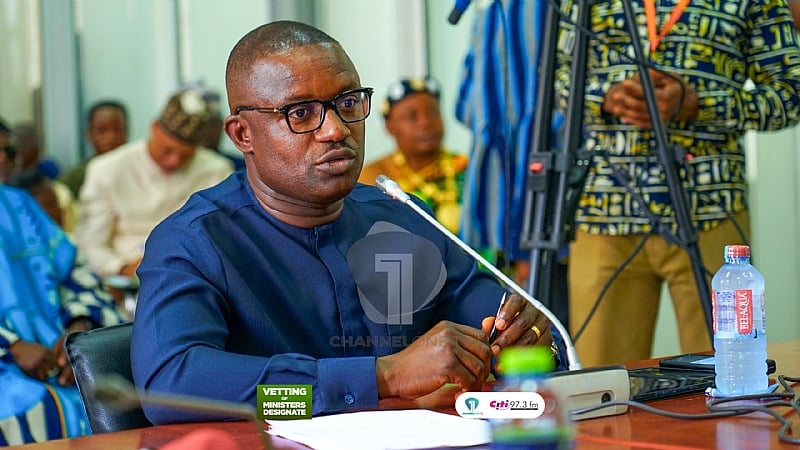The Minister of Energy and Green Transition, John Jinapor, has pledged decisive action to recover losses incurred by the Electricity Company of Ghana (ECG) due to the widespread theft of over 1,300 containers filled with valuable electrical equipment. This commitment comes in the wake of the arrest of 14 individuals, including 10 Chinese nationals and four Ghanaians, suspected of orchestrating this large-scale criminal operation. The stolen goods, primarily comprising ECG cables and electrical meters, represent a significant financial blow to the company and potentially compromise the stability of Ghana’s power infrastructure. Jinapor’s resolute stance underscores the government’s determination to combat such illicit activities and safeguard national assets.
The scale and sophistication of the theft were revealed during a visit by authorities to aluminium smelting facilities located in Shai-Osudoku. Within these facilities, investigators discovered compelling evidence of the criminal enterprise: numerous coils of stolen ECG cables, meticulously melted down into aluminium blocks and subsequently processed into rods, ready for export. This discovery unveiled a complex operation involving not only the theft itself but also a deliberate effort to obscure the origin of the stolen materials through industrial processing. The revelation of this sophisticated processing pipeline highlights the organized nature of the criminal network and the lengths to which they were willing to go to conceal their activities.
The investigation, aided by intelligence gathered by the National Security Agency, unearthed further evidence of the perpetrators’ deliberate attempts to destroy incriminating evidence. Designated sites were identified where stolen cables were systematically burned, presumably to eliminate any traceable markings or identifiers. This calculated effort to obliterate evidence points to a premeditated and organized operation, further emphasizing the seriousness of the crime and the need for a robust response. The discovery of these burning sites underscores the methodical and deliberate approach taken by the criminals to cover their tracks.
Jinapor’s visit included an inspection of these illicit processing facilities, along with a warehouse located in Kpone, where further evidence of the criminal operation was uncovered. Following these inspections, the Minister delivered a firm assurance that all those found culpable in the theft would be held accountable for their actions. This unwavering commitment to accountability sends a clear message that such criminal activities will not be tolerated and that the government is determined to pursue justice and recover the stolen assets.
Reinforcing his commitment to recouping the financial losses suffered by ECG, Jinapor declared that assets seized from the perpetrators would be sold, with the proceeds directed towards offsetting the company’s losses. This proactive approach to recovering stolen funds demonstrates the government’s commitment to not only punishing the perpetrators but also mitigating the financial impact of the crime on the national power company. This strategy aims to ensure that ECG can continue to provide essential services without undue financial strain.
Further investigations conducted at the Atlas Dry Port Terminal and a Customs Bonded Warehouse within the Tema Port area yielded another significant discovery: 34 containers packed with tampered ECG cables and electrical meters. This discovery raises serious concerns about potential breaches in security protocols within these crucial facilities. The presence of these stolen goods within secured port areas suggests possible collusion or negligence within the port management system, warranting a thorough investigation into how such a large quantity of stolen materials could be stored and potentially shipped. This latest discovery underscores the widespread nature of the criminal network and the need for a comprehensive investigation to identify all those involved and prevent similar incidents in the future.


